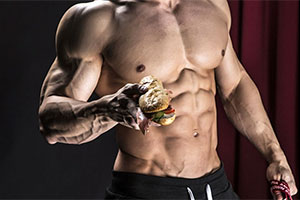Nutrition is a weird thing, driven by our traditional cultural foods, the desire for health, weight loss and muscle growth, but obscured by the desire to belong to a group, and the ever changing public perception of the “right way to eat”. It’s almost impossible to say how you should eat.
And to be honest, the science doesn’t really help that much either.
A large amount of what we think we know about nutrition comes from nutritional research based on data that has been obtained using memory-based dietary assessments. Memory-based dietary assessments consist mainly of questionnaires or surveys about what a person ate at some point in the previous week. Or, to put it more accurately, a very large amount of what we think we know about nutrition comes from what a person remembers eating AND how they feel like representing what they ate to a group of scientists who they feel are judging them based on what they eat.
In other words, what we know about nutrition is largely based NOT on measures of dietary intake, but rather reported memories of dietary intake, filtered through bias.
Plus, with an internet full of citizen-scientists, it’s hard to know what is good research and what is not.
Low-carb advocates swear the research that supports a high-carb diet is controlled by the government, influenced by corporate funding, and in general is poorly conducted.
High-carb advocates swear the research that supports low-carb diets is junk science performed by scientists with vested interests.
And amusingly, they both have research to prove their case.
We also have the anecdotes, the examples right in front of our faces, that while not scientifically scrutinized do start to paint an interesting picture.
- There are low-carb, high-fat eaters who are muscled and lean.
- There are high-carb, low-fat eaters who are muscled and lean.
- There are vegans who are muscled and lean.
- There are carnivores who are muscled and lean.
- There are omnivores who eat super healthy who are muscled and lean.
- There are omnivores who eat a decent amount of junk food who are muscled and lean.
- There are intermittent fasters who are muscle and lean.
- There are people who have never heard of fasting that are muscled and lean.
From what I can tell all of these people share some similar traits.
- They almost all workout consistently, typically with weights.
- They also seem to have an active hobby like hiking, yoga, rock climbing, biking, etc.
- They are all aware of what they eat.
So here’s my advice:
Fasting works. Let’s never let people’s interpretation of science get in the way of logic. If you aren’t eating, yet you are breathing, then you are losing non-water body weight. It’s impossible not to (the carbon part of the carbon dioxide that you breathe out comes from the breakdown of carbs and fats in your body).
Eat responsibly. We’ve all been kids. We’ve had our turn eating like kids. We’ve had our ice-cream birthday parties and our stomach aches from eating too much candy at the movies. We’re adults now. Time to eat like it. This means being aware of what you’re eating and how much you are eating. Be aware of what “too much” is and avoid it when possible.
Workout. Do this consistently. Find a way. You don’t have to become a world class powerlifter or a cirque-du-soleil gymnast, but getting stronger is always a good idea. You do not need to be obsessive, you only need to be consistent. Consistent with your workouts and consistent with your effort. Get strong, stay strong.
It may be true that you results are 80% nutrition and 20% exercise, but in my opinion the effort you put into exercise is the catalyst that drives the reaction. Make this a priority.
Other than that, don’t worry so much about nutrition. There isn’t nearly as much magic in it as you’ve been led to believe. Eat responsibly in a way that you enjoy.
There are so many different ways to get the results you are after, it’s almost as if the specific diet doesn’t matter as much as the amount of food you are eating on a regular basis.
BP









